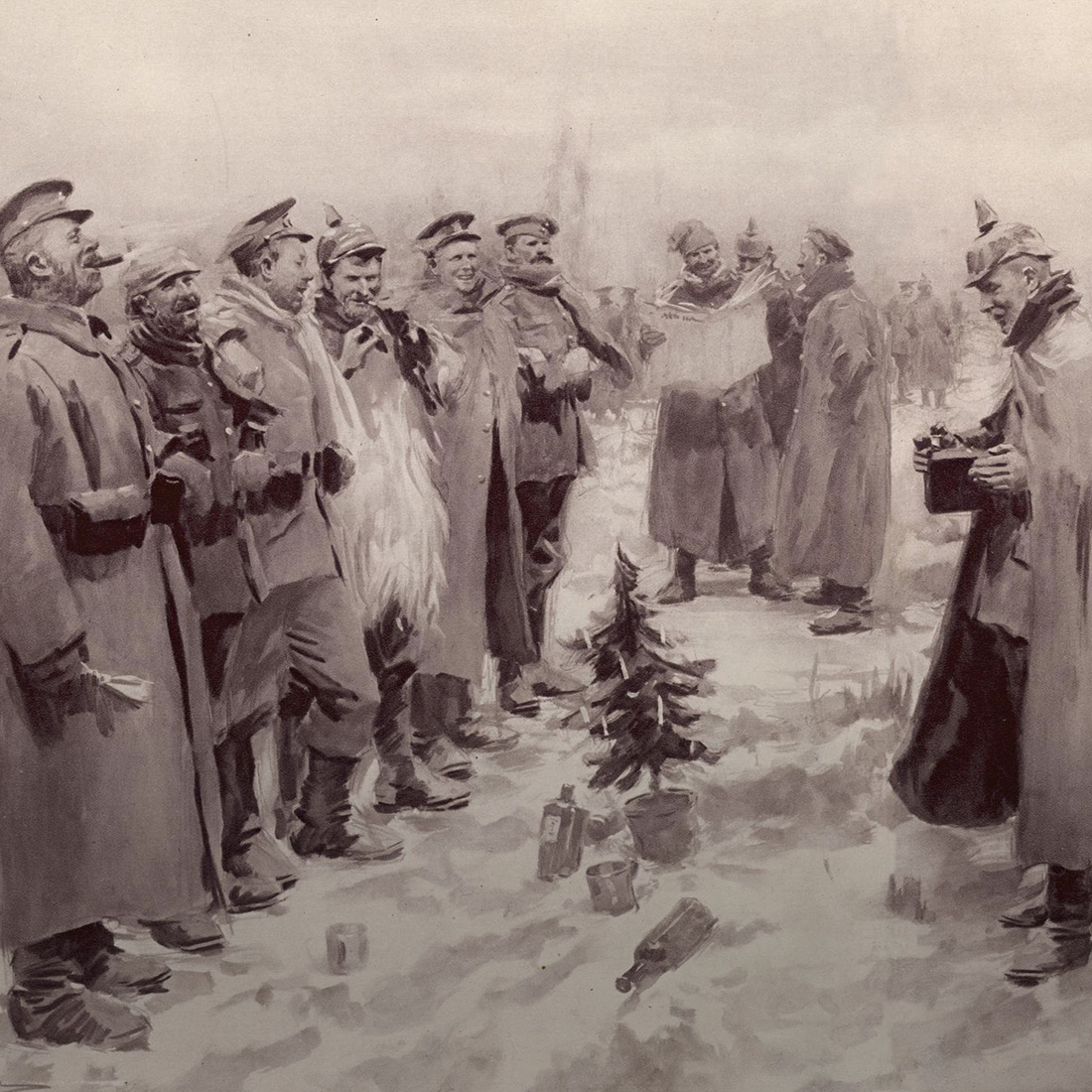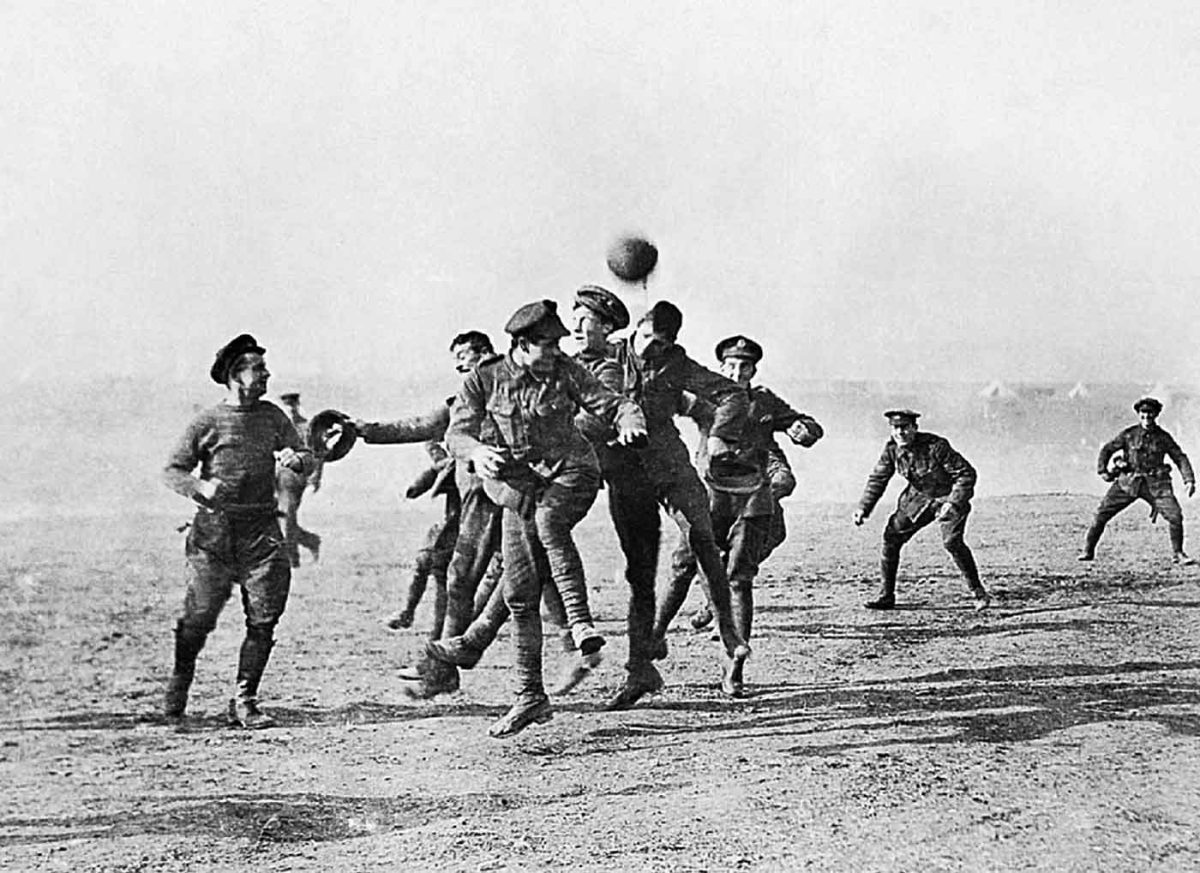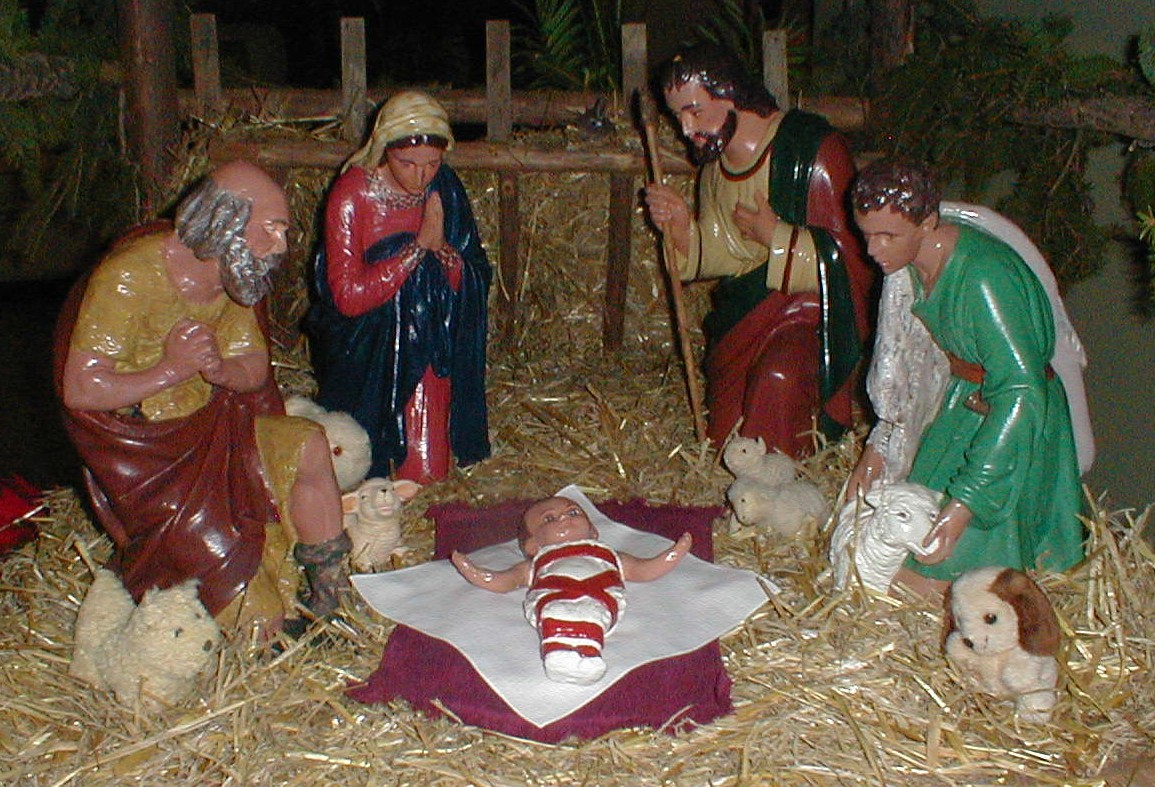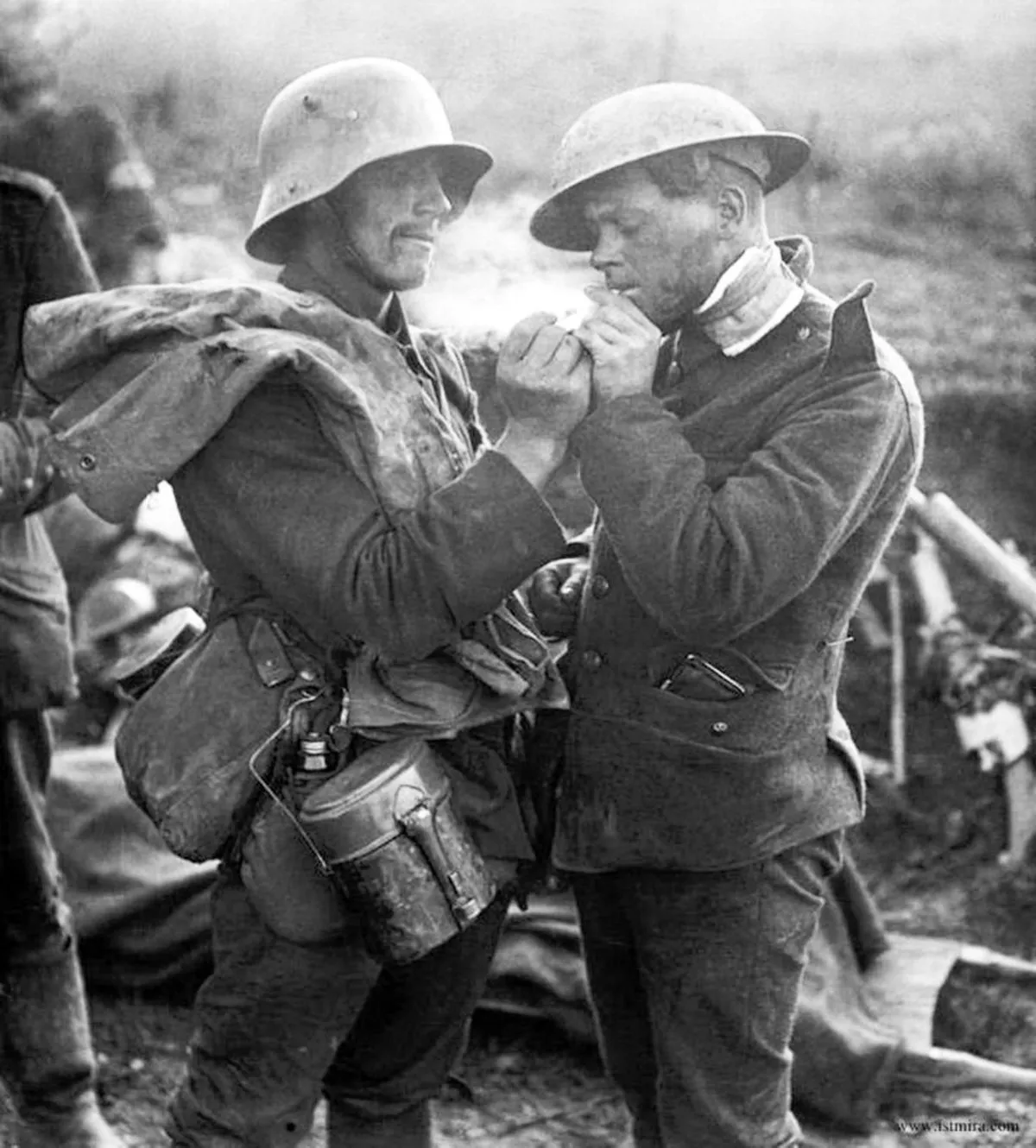By Sr. Constance Joanna, SSJD
Isaiah 52:7-10 / Psalm 98 / Hebrews 1:1-12 / John 1:1-14

Some of you will know of the Christmas Truce that took place between the allied forces and the German army in 1914. An allied gunner, Bruce Bairnsfather, who later became a well-known journalist and cartoonist, was one of the soldiers who told the story in his memoirs, and I quote from his words:
“Here I was, in this horrible clay cavity in Belgium, . . . miles and miles from home. Cold, wet through and covered with mud. There didn’t seem the slightest chance of leaving—except in an ambulance. Around 10 pm on Christmas Eve, away across the field, among the dark shadows beyond, I could hear the murmur of voices.”
Stille Nacht, heilige Nacht, alles schlaeft, einsam wacht – Sr. Anne plays her violin softly in background
The allied soldiers started to join them, singing in English, Silent night, Holy night, all is calm, all is bright. Germans were singing carols, as it was Christmas Eve. In the darkness, some of the British soldiers began to sing back. “Suddenly,” Bairnsfather recalled, “we heard a confused shouting from the other side. We all stopped to listen. The shout came again from an enemy soldier, speaking in English with a strong German accent. He was saying, ‘Come over here.’
One of the British sergeants answered: ‘You come half-way. I come half-way.’”
Another historian wrote the following:
“What happened next would, in the years to come, stun the world and make history. Enemy soldiers began to climb nervously out of their trenches, and to meet in the barbed-wire-filled “No Man’s Land” that separated the armies. Normally, the British and Germans communicated across No Man’s Land with streaking bullets, with only occasional gentlemanly allowances to collect the dead unmolested. But now, there were handshakes and words of kindness. The soldiers traded songs, tobacco and wine, joining in a spontaneous holiday party in the cold night. And it wasn’t confined to that one battlefield. Starting on Christmas Eve, small pockets of French, German, Belgian and British troops held impromptu cease-fires across the Western Front, with reports of some on the Eastern Front as well. Some accounts suggest a few of these unofficial truces remained in effect for days.” All of a sudden, during that Christmas truce, enemies saw each other as human beings, the creatures that God had created, the people for whom God had become incarnate in that tiny child in Bethlehem.
I was reminded of that 1914 Christmas miracle when I was thinking about this year’s Christmas sermon and all the horrific things going on around the world – most notably Russia’s attack on Ukraine, but many other wars and violent protests around the world this past year, including Asia, the Middle East, Africa, Central and South America, and of course our neighbors to the south. How can we celebrate the birth of the Messiah, the Prince of Peace, in the midst of all the horrors in our world?
I think the prologue to John’s gospel says it all: “The Word became flesh and dwelt among us, and we beheld his glory, glory as of the only son of the father, full of grace and truth.”
What does it mean for the Word to become flesh? First, God, the Word, created the universe in all it’s glorious diversity – physical, colourful, filled with music and all the other joys of the senses.
And God, godself, became incarnate in Jesus, showing us the way of sacrificial love.
The scriptures tell of God’s love and creation of new life out of the suffering of the old. Jesus is the Word enfleshed who “went about doing good,” enfleshing Love in physical gestures of healing and calming, of teaching and preaching and counseling, of eating and sleeping, of friendship and courage and endurance and sacrifice. That is the incarnation, the meaning of God’s coming into our world in flesh. It is what gives us our own motivation to heal and calm and teach, to care for the homeless, the lonely, the poor and forsaken, the refugee, the abused. The more we can make physical our concern for those who are at the heart of God’s creation, the more we incarnate God’s love.
Once Christmas was over in Belgium in 1914, the soldiers went back to fighting and killing each other. But they had had a glimpse of a heavenly kingdom during that Christmas truce which they would never be able to forget, and I like to think that it not only saved them from total despair, but it reminded them that in spite of having to fight for a particular country or political point of view, they were able to sing of peace in their hearts – Silent night, Holy night, all is calm, all is bright. They had had a vision of something so different from the war – a vision of all people working together in practical ways for common good – that they would be changed forever.
“We have seen the vision,” as W.H. Auden says in his poem For the Time Being, – the miracle of Christmas, the miracle of incarnate human love, and after that it’s what happens next, after Christmas is over, that is important, that can bring that vision to reality.
Howard Thurman, a Civil Rights activist who was a mentor to Martin Luther King in the 1960s, wrote this poem about Christmas, and for those of you familiar with Margaret Rizza’s music, she wrote a beautiful arrangement of it:
When the song of the angels is stilled,
when the star in the sky is gone,
when the kings and princes are home,
when the shepherds are back with their flocks,
the work of Christmas begins:
to find the lost,
to heal the broken,
to feed the hungry,
to release the prisoner,
to rebuild the nations,
to bring peace among the people,
to make music in the heart.
And so dear sisters and friends, I pray that we all may find the music in our hearts, that Christmas will be just the beginning of something new, that the Word Made Flesh may so fill our hearts and minds that we will reach out to others with God’s practical, life-giving love on our lips and in our hearts.
The bread and the wine which is consecrated in this Eucharist is the most visceral reminder of that. Jesus died for us, and he gave us his body and blood as physical, incarnate nourishment for our souls, as the food we eat offers nourishment for our bodies. May receiving the Holy Eucharist always remind us that the Word made Flesh, Jesus, Emanuel, God with us, offers us all we need to care for each other and offer love and peace in this violent world.
Violin again softly in background, then a little louder as we all start to sing Silent Night, Holy Night)





